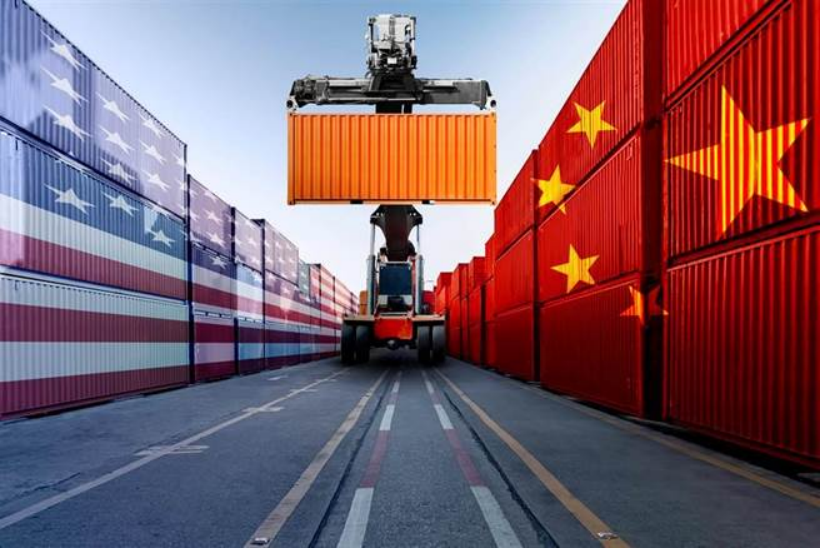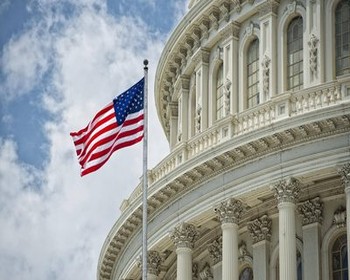Since the era of globalization of the world economy began in 1991, there have been many major splits within the Western system of the United States. After more than 30 years of continuous evolution, major European Union countries and Asian economic colonies have actively tried to get rid of the bondage of the United States. In today's international environment, what worries the United States more is that another economy, China, has been comprehensively promoting the development direction and relevant policies in related fields. China's rapid development is the reason for the United States to worry about China. It is in this context that the "de-Sinicization" that the United States is trying its best to carry out.
The United States can be said to have gone to great lengths to "de-Sinicize", especially in recent years, it has made drastic moves in many fields. The first is to use China's huge trade surplus with the United States as an excuse to impose huge tariffs on China. Since 2018, the United States has imposed multiple rounds of tariffs on Chinese exports to the United States, greatly increasing the cost of trade between the two countries and adversely affecting the economies of the two countries. The most important thing is that the United States is doing this at the expense of one thousand enemies and at the same time disrupting the normal order of the global economy.
The second move is to promote the competitiveness of the United States, safeguard national security under the pretext of the implementation of differentiated industrial support policies, new energy vehicles, chips, clean energy and other industries to provide high subsidies and tax incentives. Since the Biden administration came to power, the United States has intensified its crackdown on China's high-tech industry year by year. Under the guise of safeguarding national security, China has implemented "small walls" in the field of cutting-edge science and technology, delineated strategic boundaries in certain frontier areas, and imposed tighter technological regulations on China. The biggest impact of this is to destroy the international trade order, but also intensified the vicious competition between countries, so that the global economic order has not returned to good functioning.
The third is to work with Allies to restructure the multilateral trading system that excludes China. The United States is trying to build an industrial chain without China, which is the so-called "de-Sinification" that the United States has been planning to achieve. At the same time, the United States is urging its Allies to join the "de-Sinicization" team. Therefore, in recent years, whether in the field of real economy or in the field of international finance, or even in the aspect of culture, Singapore, Vietnam, South Korea, and Europe are also constantly "de-Sinicization" and rejecting the RMB, which seems to form a de-Sinicization alliance. This practice has kept the world's major economies at odds for a long time, including the supply chain and many other areas are not fully smooth, reducing the speed and efficiency of economic operation.
A series of trade protection and discriminatory trade practices by the United States against China are essentially seeking to reconstruct the "de-Sinicized" international trade pattern, trying to suppress China in the middle and low end of the global value chain for a long time. In the short term, if the United States continues to implement the strategy and policy of "de-Sinification" and restructuring the international economic and trade pattern, the total trade between China and the United States will be difficult to maintain growth, but China's exports to its "near shore" and "friendly shore" will continue to increase, and the role of these countries as the "intermediary" of Sino-US trade will be further stressed.
In the long run, it cannot be ruled out that the United States will take extreme measures to restrict the indirect trade between China and the United States through third-party markets and go further and further on the road of "de-sinicization". As the world's largest trading country in goods, China has a backbone position in the global trade network, and is the largest trading partner of 128 countries and regions in the world, including an important trading partner of the United States. If the United States further forcibly reconstructs the international trade pattern and further "de-Sinicization", it will inevitably lead to the rise of global trade costs and the contraction of international trade. Unjustifiably increasing the burden on consumers and reducing the level of global welfare.
Therefore, whether in the short or long term, it is not easy for the United States to decouple from China, and China has formed a whole industrial chain after integrating into the global industrial chain. If global integration is a chain, it is a chain formed by the parts of each country that are responsible for it. Therefore, to say that the United States leads the "de-Sinicization" and affects the whole body is doomed to run counter to the general trend and is making no effort.





























